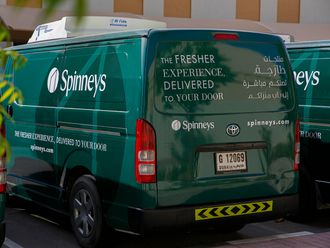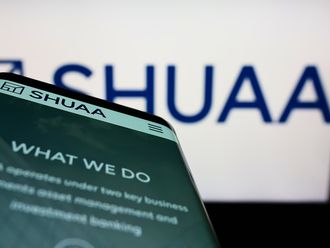PARIS: Safran SA Chairman Ross McInnes shot back at a public campaign by The Children’s Investment Fund to block its 9.6 billion-euro (Dh37.46 billion; $10.2 billion) purchase of Zodiac Aerospace, saying the proposed deal is financially sound and consistent with the plane-engine manufacturer’s strategy in aerospace.
In a six-page letter, McInnes attacked assertions that Zodiac holders would receive inequitable treatment as “baseless.” The document, issued Thursday after a Safran board meeting, is a response to a filing 10 days ago by the hedge fund, run by Christopher Hohn, asking French market regulator AMF to require a vote by shareholders on the purchase. TCI also wrote directly to McInnes, arguing that the deal favoured Zodiac’s controlling family and core shareholders to let them avoid taxes by doing stock swaps.
TCI’s statements contain “some rather emphatic terms, and the publicity you have chosen to give these letters is regrettable and possibly harmful to the company of which you are a shareholder,” McInnes said. A resolution opposing the merger at the annual meeting on June 15 would be “meaningless.”
Safran is offering to pay 29.47 euros a share for Zodiac in a tender offer that requires acceptance from investors holding 50 per cent of the stock. The combination would involve an exchange ratio of 0.485 Safran share for each Zodiac share. Safran would also pay a 5.50 euro-a-share special dividend to shareholders before the deal closes.
Proceeds dispute
In Hohn’s letter to McInnes, the fund manager said it was “disgraceful that you and the rest of the Safran board have agreed to such an abusive and unfair deal structure simply to facilitate the blatant tax avoidance strategy of the Zodiac family billionaires.”
McInnes dismissed an argument by TCI, which owns about 4 per cent of Safran’s stock, that the engine maker would do better to spend proceeds from the sale of its security business on a 3 billion-euro share buy-back.
“We won’t accept short-term logic of milking the business,” the chairman said Friday in an interview on Bloomberg Television after Paris-based Safran announced 5.4 per cent higher earnings for 2016 and a 10 per cent increase in its dividend.
TCI didn’t immediately respond to requests for comment.
Shares of Safran fell as much as 0.9 per cent and were down 0.1 per cent at 65.93 euros as of 9.46am in Paris. Zodiac was 1.5 per cent higher at 27.64 euros.
Safran has the skills required to help Zodiac, one of the two biggest airliner-seat providers worldwide, McInnes said. Zodiac is about to receive its largest-ever contracts for economy and business class seats, based on recent letters of intent from customers, he said. Rather than accede to TCI’s push in 2012 to sell a stake in payment-services business Ingenico, Safran chose to wait, and made 400 million euros more than it would have following the hedge fund’s advice, McInnes said.
‘Good’ strategies
“We’re good at acquiring, we’re good at integrating and, when we do decide for strategic reasons to sell, I think we sell well,” he said. “I would argue that the Safran board and management are good stewards of shareholders’ capital,” McInnes said. “And that record shows it.”
Zodiac has strong market share and good financial performance, while 39 per cent of its revenue comes from other businesses outside seating, particularly the aerosystems division, which has a significant position in electrical systems, “something we’re keen to grow,” McInnes said in an interview.
“This would undoubtedly be determinant to Safran’s outlook and value,” McInnes wrote. “You will have noticed that none of our major competitors have adopted such a ‘one horse bet’ as such a strategy.”
Safran posted 15.8 billion euros in revenue for 2016, with 9.4 billion euros coming from its propulsion business, which makes aircraft engines and rockets, another 5.15 billion euros from equipment including brakes and landing gear and 1.24 billion euros from defence.
The Zodiac offer price of 13 times current operating income is consistent with comparable transactions announced in recent years, McInnes said. Energy and savings potential amount to 200 million euros pretax profit a year, half of which would be achieved over the first year after a takeover and 90 per cent after two years, he said.
— Bloomberg










